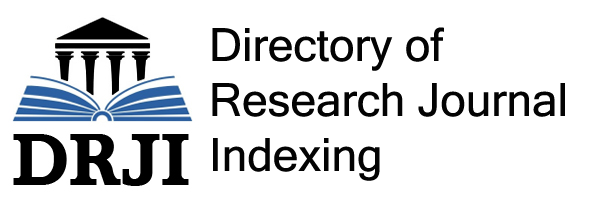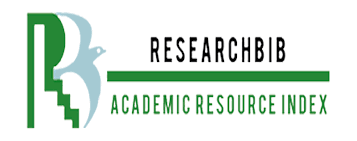Existential analysis of everyday life. Towards the therapeutic encounter: consultant and process
DOI:
https://doi.org/10.35622/j.rep.2022.03.004Keywords:
process, consultant, existential analysis, therapyAbstract
Introduction. Daily life is understood as the network of relationships presented within social structures, in which norms and roles are demanded and have a high existential content. Objective: to lead the reader to understand the environment and the possibility of a relationship that is sought to be promoted within the existential advice of daily life. Materials and methods: the article is oriented toward a conceptual exploration. It examines the theoretical bases of the proposal of the existential analysis of everyday life; simultaneously, an attempt was made to make a critical description of the theoretical postulates and enter into a dialogue with authors who base this phenomenological and existential framework. Results. A therapeutic practice is found that manages to involve and review the following questions: What kind of therapy would it be? Who attends therapy? And what would the change process be like? Conclusions. The existential analysis of everyday life understands the person as a being-relational-in-situation, and by existing in a relationship, it becomes essential to accompany the understanding of the relationship.
Estadísticas del Artículo
References
Frankl, V., & Comité de traducción al español. (2015). El hombre en busca de sentido (nueva traducción). Herder. https://doi.org/10.2307/j.ctvt7x6s4
Heidegger, M (1980). Hölderlins Hymnen "Germanien" und "Der Rhein". Suzanne Ziegler (ed.). Frankfurt am Main: Vittorio Klostermann (Gesamtausgabe vol. 39)
Honneth, A. (2018). The other of justice: Habermas and the ethical challenge of postmodernism (pp. 133-167). Routledge.
Kwee, J., y Längle, A. (2013). La Fenomenología en la Práctica Psicoterapéutica: Una Introducción al Análisis Existencial Personal. http://episjournal.com/journal-2013/phenomenology-in-psychotherapeutic-praxis)
Laing, R. (2015). El Yo dividido. Fondo de Cultura Económica, México D.F.
Längle, A. A., y Kriz, J. (2012). The renewal of humanism in European psychotherapy: Developments and applications. Psychotherapy, 49(4), 430.
Martínez, Y. A. (2019). Terapia Existencial. Teoría y Practica Relacional para un Mundo Post-Cartesiano, 2. Circulo de Estudios en Terapia Existencial.
Martuccelli, D., Y De Singly, F. (2018). Las sociologías del individuo. Journal of Materials Processing Technology, 1, 1–8.
Mayorga González, J. M., y Rojas Rodríguez, D. J. (2021). Comprensión de la experiencia reflexiva del ser en la familia desde la logoterapia para la vida. Revista Conrado, 17(81), 345-353. https://conrado.ucf.edu.cu/index.php/conrado/article/view/1907
Mayorga-González, J. M. (2019). Las condiciones existenciales del fanatismo. Revista Universidad y Sociedad, 11(4), 214-219. http://scielo.sld.cu/scielo.php?script=sci_arttext&pid=S2218-36202019000400214
Mayorga González, J. M., & Méndez Pérez, N. R. (2020). Proceso de terapia existencial de artes expresivas. Socialium, 4(2), 299–316. https://doi.org/10.26490/uncp.sl.2020.4.2.67
Sotolongo Codina, P. L., & Delgado Díaz, C. J. (2016). La complejidad y el diálogo transdisciplinario de saberes. Trans-Pasando Fronteras, (10), 11. https://doi.org/10.18046/retf.i10.2631
Sotolongo, P. (2006). Teoría social y vida cotidiana, La Habana, Acuario.
Stolorow, R. D., & Atwood, G. E. (2013). Three realms of the unconscious: (1992). In Relational Psychoanalysis, Volume 14: The Emergence of a Tradition (pp. 365–378). Taylor and Francis. https://doi.org/10.4324/9780203727942-18
Van Deurzen, E., Craig, E., Längle, A., Schneider, K. J., Tantam, D., y du Plock, S. (2019). The Wiley World Handbook of Existential Therapy. https://doi.org/10.1002/9781119167198
Yalom, I. D., y Fernández, J. S. (2018). El don de la terapia. Destino.
Published
Issue
Section
License
Copyright (c) 2022 Laura Tobón, José Mayorga, José Camargo (Autor/a)

This work is licensed under a Creative Commons Attribution 4.0 International License.
La Revista Estudios Psicológicos del Instituto Universitario de Innovación Ciencia y Tecnología Inudi Perú está sobre una licencia internacional Creative Commons Atribución 4.0. Lo que permite que los archivos sean de libre acceso y distribuidos libremente.
LOS AUTORES RETIENEN SUS DERECHOS:
- Los autores retienen sus derechos de marca y patente, y tambien sobre cualquier proceso o procedimiento descrito en el artículo.
- Los autores retienen el derecho de compartir, copiar, distribuir, ejecutar y comunicar públicamente el artículo publicado en la Revista Estudios Psicológicos (por ejemplo, colocarlo en un repositorio institucional o publicarlo en un libro), con un reconocimiento de su publicación inicial.
- Los autores retienen el derecho a hacer una posterior publicación de su trabajo, de utilizar el artículo o cualquier parte de aquel (por ejemplo: una compilación de sus trabajos, notas para conferencias, tesis, o para un libro), siempre que indiquen la fuente de publicación (autores del trabajo, revista, volumen, número y fecha).



















